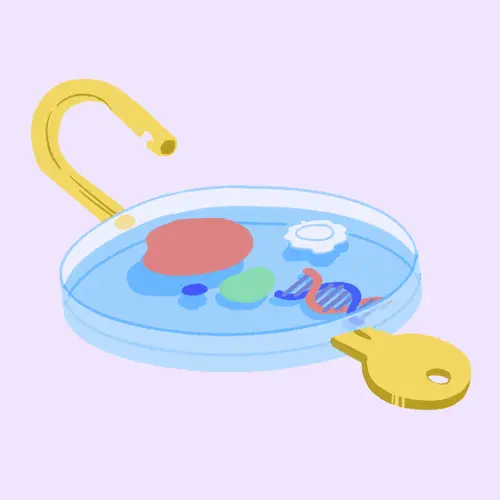Are you among the 37 million Americans who have sinus problems each year? If so, there's a lot you can do at home that can make a difference. Even better, many of these things are simple and inexpensive.
First, it's crucial to figure out why you have sinus problems, says Jordan S. Josephson, MD, a Manhattan ear-nose-throat specialist and author of Sinus Relief Now. "Allergies are a fairly common reason for sinus problems," he says.
The kinds that affect the nose include hay fever and indoor allergies.
Other reasons? "A dry nose leads to more sinus problems," says Richard F. Lavi, MD, an allergist in Twinsburg, OH. "Nasal dryness leads to congestion, thickened mucus, and worsened sinusitis."
Whatever the trigger, you can pick and choose from these five tips, or try all of them.
1. Keep Your Cool
When the heat is on, the inside of your nose gets dry, says Russell B. Leftwich, MD, an allergist in Nashville, TN. Mucus isn't cleared as well as usual, which makes sinus problems more likely.
He can't recommend a specific indoor temperature range as ideal, but he offers this guide: "You are better off wearing a sweater and keeping it cooler than cranking it up so you are comfortable wearing only a T-shirt."
Let your nose guide your indoor temperature range. "If you are not waking up with nosebleeds or congestion, that is probably a good temperature range,” Lavi says.
2. Humidify Your Air
Keep your home from becoming too dry or too humid. "Dust mites love greater than 50% humidity," Lavi says. If you're allergic to those, that's bad news for your sinuses.
Too much humidity indoors can also encourage the growth of mold, which may also set off sinus problems for some people, says Todd Kingdom, MD, a professor at the University of Colorado School of Medicine.
Experts have different views on the value of room humidifiers for creating a sinus-friendly home.
"A room humidifier never makes a difference,” Leftwich says. “There is too much air to humidify."
But Josephson says using humidifiers in the bedroom beginning in October through March or April can make a difference in keeping sinus problems at bay.
Vaporizers can keep you more comfortable if you're in the midst of a sinus problem, Leftwich says. But you need to have it close by. "It doesn't do any good to have a vaporizer on the other side of the room." You’ll need to clean the machine daily so bacteria don’t grow in them.
Breathe the mist coming from vaporizers, but be careful if there’s steam. ''Most vaporizers don't produce any steam, just a mist," Leftwich says. "But those vaporizers that do make steam and certainly steam from a tea kettle or pot on the stove must be used with caution." Steam can burn you, so don't come into contact with it.
3. Ventilate Your Home
An energy-efficient house has a drawback. "You seal up a house to make it more energy efficient, and you end up with stale air that aggravates sinus problems," Leftwich says.
The solution: "Opening up the house on a warmer day to clear the air is a good thing," he says. Just don’t do it if the pollen count is high.
The value of having air ducts on your heating and cooling system cleaned is another area of debate among experts. Leftwich calls it a waste of time and money. Some patients told him they got sicker after cleaning the ducts, he says, probably due to aggravating airborne dust. But Josephson says if the air smells dusty or moldy, it might be worth a try. It's also a good idea to change your air conditioner filters on a regular basis.
4. Be Water-Wise
Drink “at least a quart a day,” Leftwich says. Most of that should be plain water, he adds.
"The more the better," Josephson says. He tells his patients to drink enough H2O every day so their pee is generally clear.
Salt-water nasal rinses for your nose can help, too. You can buy a kit or mix up your own at home. The recipe: Mix about 16 ounces (1 pint) of lukewarm distilled, sterile, or previously boiled water with 1 teaspoon of salt. Some people add 1/2 teaspoon of baking soda to take the sting out of the salt. Use a bulb syringe to flush your nasal cavities and clean out mucus and debris.
Neti pots are another option. It looks like a tea pot with a long spout. To use it, you’ll mix about a pint of lukewarm distilled, sterile, or previously boiled water with a teaspoon of salt. Next, tilt your head over a sink at an angle of about 45 degrees. Place the pot's spout into your top nostril and gently pour the solution in.
The salt water will flow through your nasal cavity, into the other nostril, and perhaps into your throat. Blow your nose to get out any water, then repeat the steps on the other nostril.
Clean your neti pot regularly.
5. Avoid Household Irritants
Cigarette smoke, cleaning products, hairspray, and other materials that give off fumes can all make your sinus problems worse.
"Anything that has a strong odor of fumes can be a problem, especially if you are susceptible," Leftwich says. Ask family members to quit smoking.
If you're sensitive to pet dander, bathe or clean your pets weekly, Lavi says. And as much as you might want to let your pet snuggle up at night, it’s best for you to not do that.

